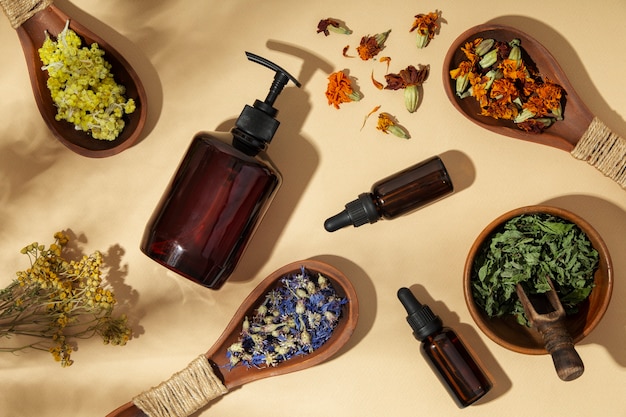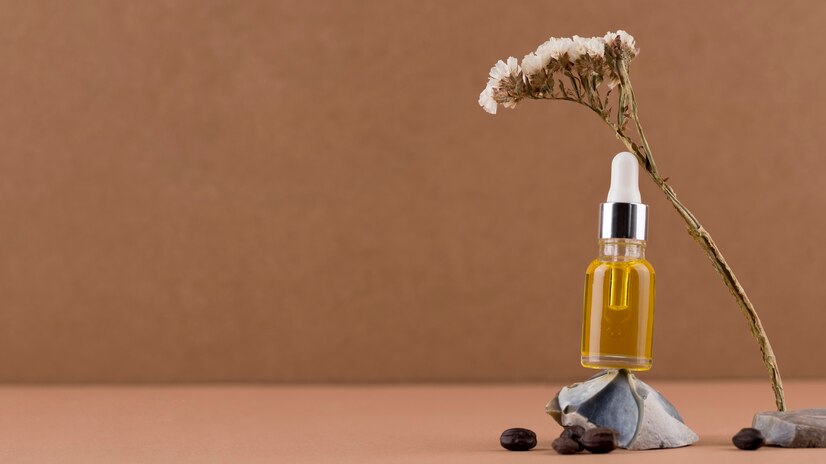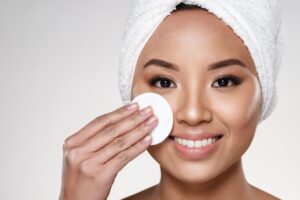To be a skincare expert, you are expected to know the right ingredients for your products. And I’m not just talking about the strange number-and-letter combinations that are encrypted on product containers; instead, I’m referring to the basic and fundamental ingredients that make an effective skincare product.
Take a moisturizer, for instance. One would expect to find ingredients such as Glycerin, Shea Butter, Ascorbic acid, aloe vera, or ceramides in the ingredients list. This is what differentiates a quality skincare product from other regular products.
In the same way, some ingredients are not usually recommended in skincare products. Ingredients like this often cause skin sensitivity and even allergic reactions in extreme cases.

There is a long list of these ingredients, and I’ll share some of them with you in this article.
So without further ado, let’s get started!
Skincare ingredients that can cause sensitivity and allergic reactions: Common irritants in skincare products
Fragrance
Naturally, the first thing that many people check when buying a skincare product is the fragrance. But what if I told you that natural and synthetic fragrances are well known for causing irritation and allergic reactions?
These fragrances are found in various products, from cleansers to moisturizers, even in products labeled “unscented.” These products often use masking fragrances to hide the scent of other ingredients that can trigger sensitivities.
Long-term exposure to fragrances has been shown to lead to contact dermatitis. Given that fragrances are added to skin and hair care products like body wash, shampoos, perfumes, lotions, and many other cosmetic products, this exposes people to a rather large amount of potentially damaging chemicals and should be avoided whenever possible.
So to protect yourself, opt for products labeled “fragrance-free” or “without perfume”. These can significantly minimize the risk of exposure, and protect your skin long term.
Sulfates
Sulfates are cleaning agents often found in products like foaming facial cleansers, and even shampoos. But while they create a nice lather, sulfates can be stripping and drying, especially for sensitive skin. The two most common types of sulfate are sodium lauryl sulfate (SLS) and sodium laureth Sulfate (SLES).
Although these two are considered safe for personal care products, there are still potential risks when they are not used as intended or at the appropriate concentrations. So, if you notice your skin feeling tight or itchy after cleansing, you may need to check for sulfates in the products you use.
However, note that the degree of sensitivity to sulfates varies from person to person. Many people have no problems using sulfate-containing products, but others may find them too harsh for their skin.
Alcohol
While alcohol can be great for degreasing oily skin, it can also be incredibly drying and irritating. Using an alcohol-based cleanser will give you an idea of what I’m taking about. Denatured alcohol, which is commonly found in skincare, is especially harsh. If you have dry or sensitive skin, products containing a high level of alcohol can be quite harmful.
Instead, add alcohol-free alternatives to your skincare collection to maintain hydration and prevent your skin from feeling parched.
Exfoliating Acids
Alpha-hydroxy acids (AHAs) and beta-hydroxy acids (BHAs) are superstars when it comes to ridding your skin of dead skin cells and promoting cell turnover.
I’ve always discussed the benefits of exfoliation and the effectiveness of AHAs and BHAs in achieving and maintaining clear skin. However, these products may not be entirely good for those with sensitive skin. Let me explain.
AHAs, like glycolic and lactic acids, can cause redness, stinging, and peeling. While BHAs, like salicylic acid, tend to be gentler, they can still irritate sensitive skin. So if you’re new to exfoliating acids, it’s wise to start with a lower concentration of these products and gradually increase frequency as your skin adjusts.
Essential Oils
This may strike as an odd addition to the list. I know. But let me explain.

Essential oils are concentrated plant extracts that are usually all-natural. However, just because these oils are solely products of nature doesn’t mean they’re gentle.
Many essential oils, like tea tree oil and lavender oil, can be irritating, especially when not diluted properly. Some may cause redness, peeling, itching or skin darkening over time for sensitive skin. So, before jumping on the essential oils trend, find out which oils are most suitable for your skin and which ones to avoid.
Preservatives
Preservatives are, no doubt, essential in skincare products. They prolong the shelf life of these products, allowing you to use them for a considerable amount of time.
However, some preservatives can be problematic for sensitive skin. Parabens, for instance, is a common type of preservative that has been linked to skin irritation and allergies. Some other preservatives to watch out for are formaldehyde releasers and isothiazolinones. These can be harmful when used in considerably high amounts. So opting for paraben-free and formaldehyde-free options can help.
Some petroleum-based ingredients can also be harmful to your skin. Mineral oil and petrolatum are common ingredients in moisturizers, and these can have comedogenic effects, leading to breakouts in sensitive skin. So opt for non-petroleum-based moisturizers.
But hold on!
Before you toss aside every skincare product you find on the shelf, let me add that everyone reacts differently to each of these ingredients. What lady A reacts to in a particular product may have no effect on lady B. This is where the strategy of patch testing comes in.
Patch testing new products: Preventing adverse reactions and skin irritations
If you suspect that a particular ingredient may adversely affect your skin or if you just want to be on the safe side when trying out new products, you need to be familiar with the concept of patch testing.
It’s a simple, non-invasive procedure that gives you an idea of how your skin reacts to a particular product. To do this, apply a small amount of the product to your inner elbow and wait 24-48 hours. If there’s no reaction, the product is generally safe to use on your face.
In more advanced cases, this can be done under the supervision of a dermatologist.

For this procedure, tiny amounts of various allergens, or common skincare ingredients suspected to be causing problems, are applied to patches. These patches are then secured to your back.
After 48 hours, the doctor will remove the patches and examine the test sites, looking for any reactions like redness, bumps, or irritation. The dermatologist might also ask you to return for another evaluation a few days later, as some reactions can take time to develop.
Choosing gentle and non-irritating skincare formulas for sensitive skin types
Sensitive skin is like a delicate flower that needs extra care, and it’s usually difficult to navigate the skincare world with this type of skin.
It’s challenging to find products that’ll nurture your precious complexion, as many of these contain harsh ingredients that leave you with redness, irritation, or that uncomfortable tight feeling. So if you’re someone with sensitive skin, here are some tips to always remember.
Know what ingredients to avoid
The first step in caring for your skin is understanding what works and what doesn’t. We already discussed some common ingredients, such as fragrance, alcohol, and sulfates. Familiarize yourself with this ingredient list and avoid products that contain them.
Choose soothing ingredients over harsh ones
While avoiding irritants is key, incorporating some calming ingredients can also be helpful. Ingredients like oatmeal, aloe vera, ceramides, and hyaluronic acid are known for their soothing and barrier-repairing properties. These can help strengthen your skin and make it less prone to irritation.
Opt for gentler options
When choosing cleansers and moisturizers, opt for gentle formulas. Cream cleansers generally strip less than foaming ones. For moisturizers, look for those labeled “non-comedogenic.” This means that they won’t clog your pores. Fragrance-free and hypoallergenic options are also good choices.
Give it time
Finding the perfect skincare routine takes time, especially for sensitive skin. So don’t get discouraged if a product doesn’t work right away. Give your skin time to adjust to new products, and be patient in your search for gentle products that will keep it supple and healthy.
Also, remember that less is more when starting a new skincare routine. It’s best to introduce products one at a time, so you can pinpoint which ingredient is possibly causing trouble.
Lastly…
By understanding potential irritants and following these tips, you can create a skincare routine that keeps your skin happy and healthy.
Note; this is not an exhaustive list. Everyone’s skin is unique, and what irritates one person might be fine for another.
The key is to pay attention to how your skin reacts to new products. And if you experience redness, itching, burning, or breakouts, stop using the product immediately.











